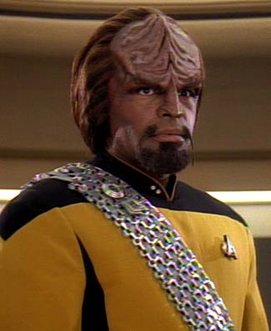This week, I wanted to touch on an important related design issue that is very hard to do well, Non-Human PCs:
This isn't really a concern for my rule set, being Swords & Sorcery-themed and, unsurprisingly, humanocentric. However, Non-Human PCs being believable are a concern for any RPG that incorporates High Fantasy and/or Science Fiction elements, which is a whole boatload of them- everything from D&D to Shadowrun to Star Wars.
Of course, what constitutes "believable" depends upon the level of immersion that the RPG purports to have. For example, for B/X D&D's simplified rules set, where Demi-Humans are effectively the "multi-class option," as Race-as-Class mostly works.
However, for deeper levels of immersion, a lack of believability can be a problem for those who value verisimilitude. As a world building task, it's quite hard work to develop a truly alien mind set, belief system, culture, history, etc.
Consequently, most RPGs (and other media) cut corners. In High Fantasy, Non-Human species are typically the Tolkien standards, blatant Tolkien ripoffs or weird monocultures such as Scottish Dwarves. Science Fiction is even worse, where most aliens are just Aliens with Forehead Ridges.
One of the few RPGs to do Non-Humans right is 2300 AD (originally titled Traveller: 2300, as the game as supposed to be a prequel to Traveller), from the genetically-engineered Pentapod to the vicious Kafers (a name based on the German word Käfer, meaning "beetle"). Culture, motivations and otherness are all done well and add to the aliens' strangeness.
The game is definitely worth a look to see how GDW handled the Non-Humans, as well as interesting relatively hard Science Fiction world building in general. Except for having France be the reigning superpower, which shatters suspension of disbelief.
Being creative is hard, so the state of Non-Human PCs in RPGs is somewhat understandable. However, sometimes avoidance is the best strategy (*cough*Swords & Sorcery*cough*).
Of course, what constitutes "believable" depends upon the level of immersion that the RPG purports to have. For example, for B/X D&D's simplified rules set, where Demi-Humans are effectively the "multi-class option," as Race-as-Class mostly works.
However, for deeper levels of immersion, a lack of believability can be a problem for those who value verisimilitude. As a world building task, it's quite hard work to develop a truly alien mind set, belief system, culture, history, etc.
Consequently, most RPGs (and other media) cut corners. In High Fantasy, Non-Human species are typically the Tolkien standards, blatant Tolkien ripoffs or weird monocultures such as Scottish Dwarves. Science Fiction is even worse, where most aliens are just Aliens with Forehead Ridges.
One of the few RPGs to do Non-Humans right is 2300 AD (originally titled Traveller: 2300, as the game as supposed to be a prequel to Traveller), from the genetically-engineered Pentapod to the vicious Kafers (a name based on the German word Käfer, meaning "beetle"). Culture, motivations and otherness are all done well and add to the aliens' strangeness.
The game is definitely worth a look to see how GDW handled the Non-Humans, as well as interesting relatively hard Science Fiction world building in general. Except for having France be the reigning superpower, which shatters suspension of disbelief.
Being creative is hard, so the state of Non-Human PCs in RPGs is somewhat understandable. However, sometimes avoidance is the best strategy (*cough*Swords & Sorcery*cough*).



No comments:
Post a Comment